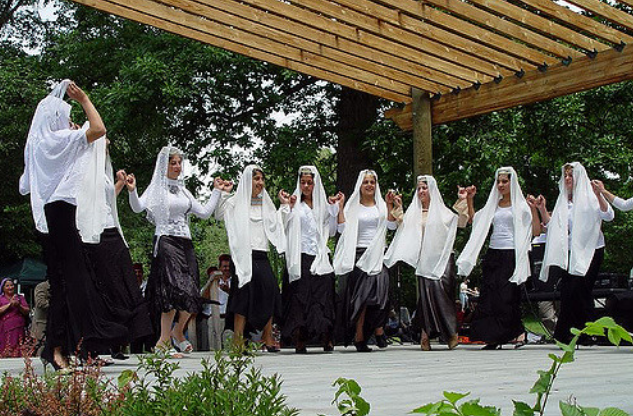Peoples & Languages of The Caucasus - The Meskhetian Turks

The Meskhetian Turks are refugees, forced to leave Meskhetia, in southern Georgia under Stalin's deportation policies in 1944. This Caucasus region of Eurasia has existed as an imperial borderland for the Russian and Ottoman Empires as well as in contemporary times under the USSR. As such, the transnational character of this specific region reflects the history of the Meskhetian Turks. Much of their collective identity is thus related to geographic factors both through historical and contemporary events. For instance, the idea of a central homeland and a hope of return provides a strong component, which reinforces group identity and cultural distinctiveness.
However, Meskhetians have also embraced their newfound home abroad such as in the United States, practically for economic reasons as well as provisions of rights and benefits, once denied. In addition, as Bilge (2011) notes, "Younger generations, who were born and raised in countries such as Azerbaijan or Turkey, don't have the same sense of kin and attachment to Meskheti as the older generations" (p. 15). Additional reasons also pertain to a lack of interest in repatriation to Georgia. As Prof. Zaal Kividze alluded to specific aspects regarding ethnic identification, in relation to being received as ethnic minorities. Repatriated Meskhetian Turks who identify as Georgians would not be treated as ethnic minorities in this respect.
Nevertheless, Meskhetian Turks are ethnically different from Georgians, especially in regards to religion in which Islam is practiced. As such, they are often referred to as Muslim Georgians. Linguistic aspects further exacerbate this divide as Meskhetian Turks identify with Turkish culture and the Turkish language. In fact, Meskhetian's identify as Turks & Georgians and consider Georgian the mother tongue while Meskhetian is vernacular and Russian being the lingua franca. As Prof. Zaal Kividze noted, semiligualism is common and adults and pre-school children have the option of Georgian language courses for repatriation purposes.
The complexity regarding group identity is further compounded historically by common threats, which serve to strengthen ethnic consciousness and group identification. "Once the Meskhetians experienced discrimination because of their ethnicity, their consciousness of that ethnicity was heightened" (ibid). The forced relocations coupled with government registration records that indicated other ethno-national groups had an adverse impact on ethnic and cultural identity for the Meskhetians. The development of diverse ethnic communities around the world has enabled a unique cultural sense of self for the Meskhetians. "Their geographical positions as well as their social and economic situations influence their cultural identity" (ibid p. 18).
The perpetual exile of the Meskhetians was a principle factor in identity formation. As Aydıngün, Harding, Hoover, Kuznetsov & Swerdlow (2006) note, "the experience of deportation helped the Meskhetian Turks develop an identity as a separate and distinct people" (p. 7). The threat of a common enemy helped to reinforce the Meskhetian cultural and ethnic identity. Despite these factors, the transnational identity eventually coalesced into three distinct patterns of cultural and ethnic identity. Meskhetians whose self-perceptions centered on Georgia as their collective home, others who viewed themselves as Turks with Turkey as their homeland and a final larger sub-group who viewed themselves as culturally Turkish, but attached to Georgia.
References:
Bilge, N. (2011). Conflict and Cultural Identity: Meskhetian Turks, 24rd Annual International Association of Conflict Management Conference.
Ayşegül, A. Harding, Ç. Hoover, M. Kuznetsov, I. & Swerdlow, S. (2006). Meskhetian Turks: An Introduction to their History, Culture
and Resettlement Experiences, Center for Applied Linguistics.
Image Credit: BoiseNoise - Zoo Boise 2006 007
Video Credit: Ahiska Türkleri'nin Mücadelesi Anlatıldı - Meskhetian Turks Struggle Explained YouTube
very difficult english words used.
The content is what matters and writing on historical subjects demands good academic research and thus, command of the language in order to justify the importance of the material and topic.
Very good history lesson!
Thank you. The subject of refugees and diaspora movements is intriguing and tragic. there is much to learn about how people in retain their collective identities under such duress. Sometimes language, especially the more esoteric and obscure can be a major factor in retaining those ethnic and cultural bonds, despite geographical breaks from one's proverbial homelands.
Very good history exposition. It has helped to know about another culture